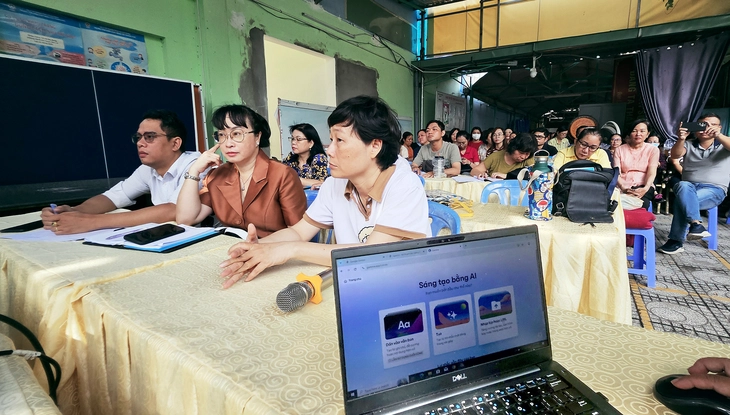
Teachers of Ba Dinh Secondary School, Cho Quan Ward, Ho Chi Minh City trained in using AI in teaching - Photo: NHU HUNG
Recently, when Prime Minister Pham Minh Chinh directed that AI should be taught to students in primary schools starting from grade 1, two opposing opinions immediately appeared in public opinion.
One side agrees, saying that this is a necessary step to prepare the new generation to enter the digital age, where AI becomes the main technology platform. The other side is concerned that teaching AI too early will "dull" children's intelligence, making them dependent on machines and losing the ability to think independently.
Fear is lost opportunity
I understand and respect both opinions, but if we stop at fear, we will miss the precious opportunity to equip children with the intellectual baggage of the 21st century. I tend to support the view, because reality has proven: when technology becomes an inevitable trend, not preparing children early is the most dangerous thing.
Kids today are already surrounded by AI: from recommended YouTube videos , to games with computer characters, to voice assistants in their phones. Not teaching kids about AI doesn’t mean they’re not exposed.
On the contrary, children are exposed unconsciously, easily carried away without any self-defense mechanism. The fear of "intellectual dullness" will actually occur more strongly if children only use without understanding, only consume without the ability to criticize.
The key here is to understand AI literacy correctly. It does not mean “teaching children to program AI” or “leaving all learning to AI”. AI literacy is the ability to recognize, use, evaluate, and respond responsibly to AI.
In primary school, especially grades 1-2, the goal is not to teach children high technology but simply to help them understand: machines can be smart but they are not human. AI can answer but can also be wrong and personal information such as name, address or phone number should not be shared. These are "traffic safety lessons" in the digital age.
Living with AI wisely
Looking back, nearly 30 years ago, there were also people who worried that the Internet would make children lose their ability to think, only knowing how to "copy and paste". But then digital literacy became a mandatory civic skill. With AI, I see the story today as no different: the issue is not fear but teaching children to live wisely with AI.
The risk of dependence only occurs when adults turn AI into a tool to replace thinking. On the contrary, if properly guided, AI can completely become a means to train critical thinking.
I imagine that every time the AI gives an answer, teachers can encourage children to ask: "Where could the AI go wrong?", "Why are the results different?". These questions will stimulate intelligence, not dull it.
In addition, the process of growing up will help children gradually become familiar with information skills such as searching, reading, analyzing, comparing, evaluating, synthesizing, storing and retrieving information from the brain or computer hardware - skills that are extremely necessary for high-quality human resources in the future.
So should we be too worried about AI or should we consider it a “new language” that children need to learn to become citizens of the 21st century? Prohibition never makes children smarter, only equipping them to be skeptical, to verify, to distinguish between truth and falsehood is the way to protect and nurture intelligence.
Proactively teach, guide, and accompany
Can we prevent children from accessing AI forever? If one day they still use AI without guidance and supervision, like minors without a driver's license, not understanding the Traffic Law but still recklessly driving on the road, the harm will certainly be much greater than proactively teaching, guiding and accompanying them from the beginning. And so, teachers really need to be proficient in AI and have enough pedagogical skills to teach children.
Spiral mechanism
The most important thing is not to prevent children from being exposed to AI, but to build a spiral education mechanism: the younger generation recognizes and has attitudes, then the older generation uses, evaluates, and creates. And certainly parents and teachers must be the "gatekeepers", ensuring that AI is only a companion and not a replacement for books, pencils, or learning efforts.
Source: https://tuoitre.vn/day-ai-qua-som-se-lam-cun-tri-tue-tre-20251008100654406.htm


![[Photo] Prime Minister Pham Minh Chinh attends the World Congress of the International Federation of Freight Forwarders and Transport Associations - FIATA](https://vphoto.vietnam.vn/thumb/1200x675/vietnam/resource/IMAGE/2025/10/08/1759936077106_dsc-0434-jpg.webp)




![[Photo] Prime Minister Pham Minh Chinh inspects and directs the work of overcoming the consequences of floods after the storm in Thai Nguyen](https://vphoto.vietnam.vn/thumb/1200x675/vietnam/resource/IMAGE/2025/10/08/1759930075451_dsc-9441-jpg.webp)
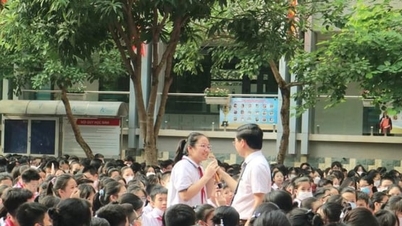



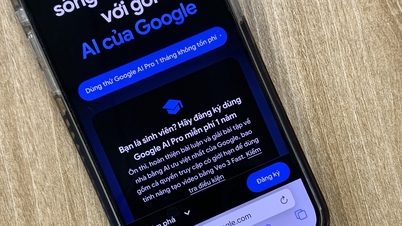





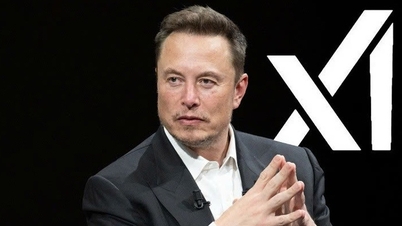









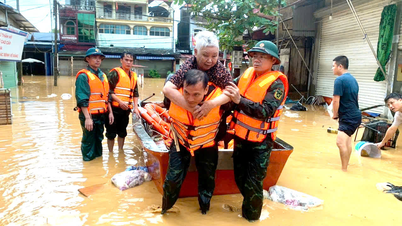





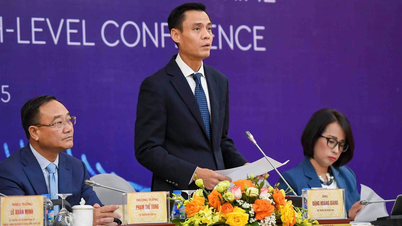



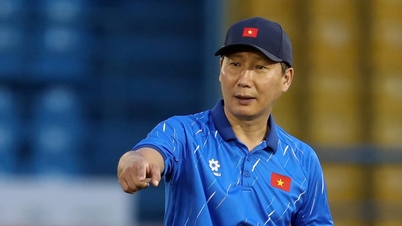

![[Photo] Closing of the 13th Conference of the 13th Party Central Committee](https://vphoto.vietnam.vn/thumb/1200x675/vietnam/resource/IMAGE/2025/10/08/1759893763535_ndo_br_a3-bnd-2504-jpg.webp)


























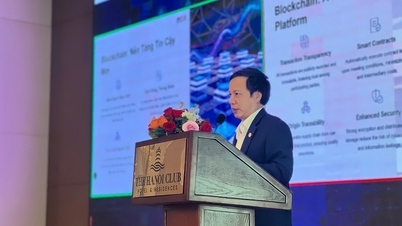






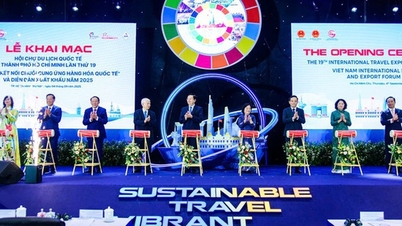



























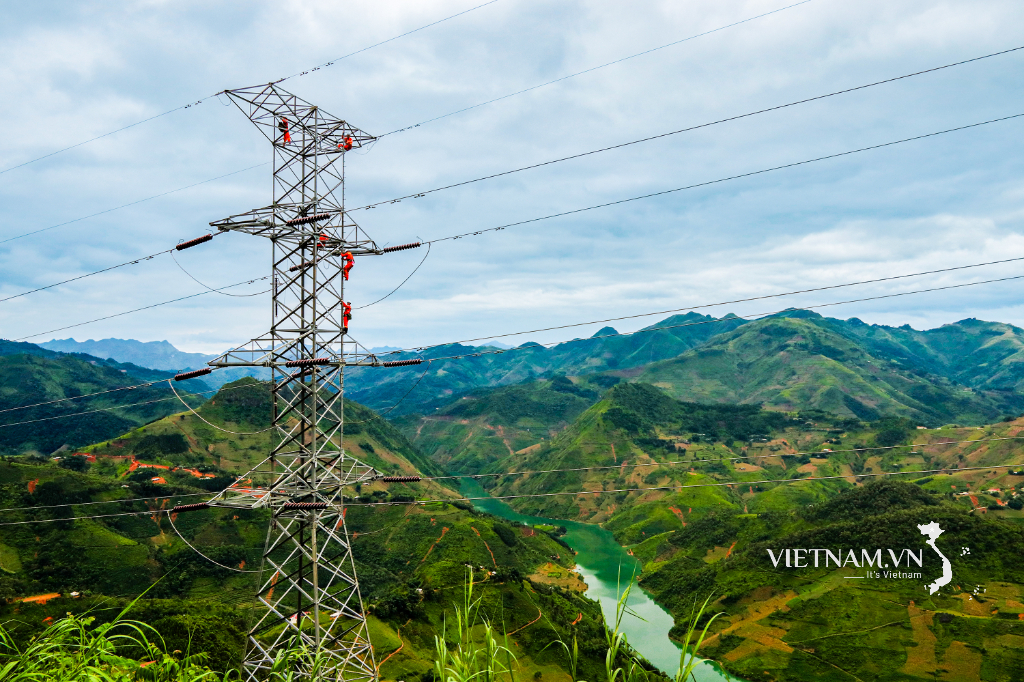

Comment (0)